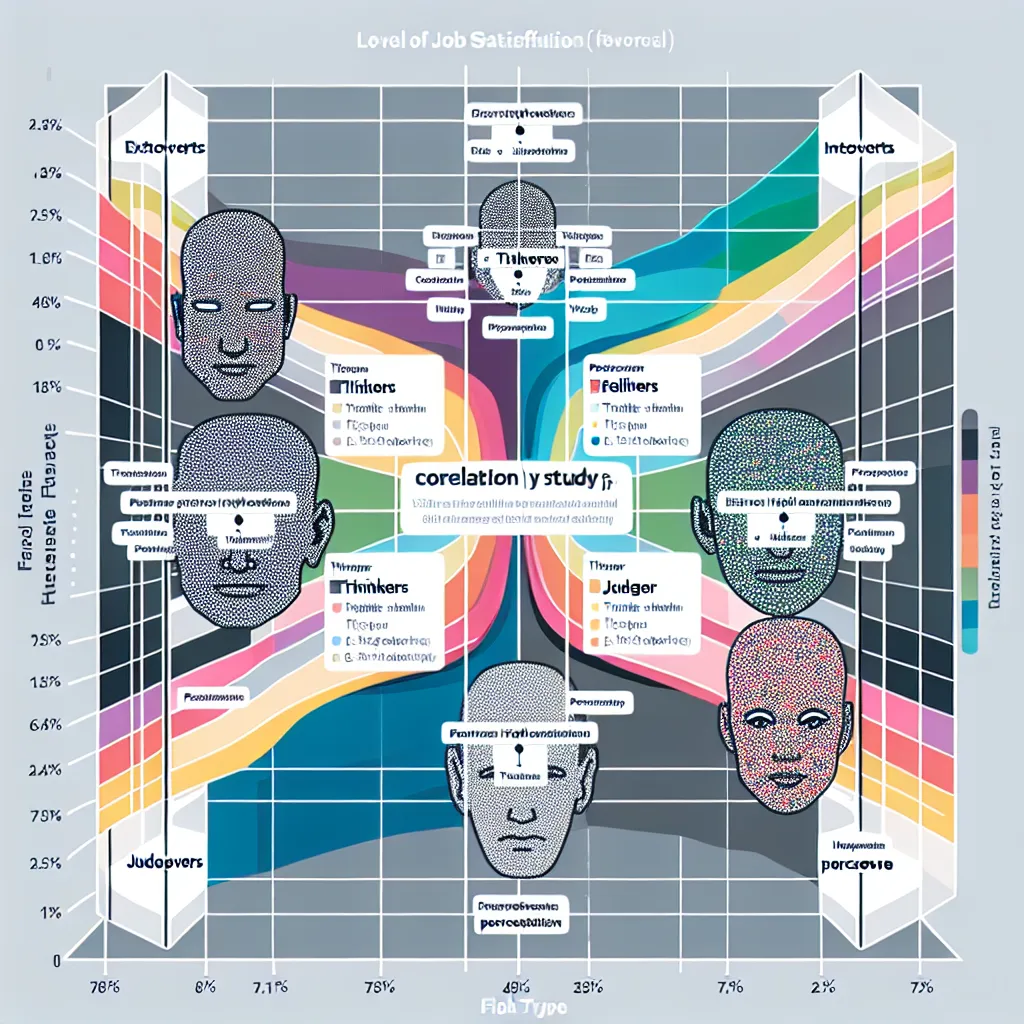Understanding the relationship between an individual’s personality type and their level of job satisfaction is crucial for both employees seeking fulfilling careers and employers aiming to cultivate productive and contented workplaces. This article provides a comprehensive exploration of existing research concerning the correlation between personality types, as defined by popular typologies such as the Myers-Briggs Type Indicator (MBTI), and job satisfaction. Drawing upon a range of empirical studies and psychological theories, insights are offered into how personality traits influence career choices, workplace behavior, and overall contentment with one’s job.
Personality plays an integral role in shaping our preferences, behaviors, and interactions within professional environments. As such, examining the link between personality types and job satisfaction can yield valuable insights for individuals and organizations alike. Personality assessments like the MBTI categorize individuals into distinct types based on their preferences in how they perceive the world and make decisions. These preferences impact how people cope with workplace challenges, relate to colleagues, and what they expect from their careers.
A correlation study exploring the relationship between different personality types and job satisfaction suggests that certain personality traits may be associated with higher levels of contentment in the workplace. For instance, individuals with a preference for extraversion often thrive in jobs that involve social interaction and teamwork. They tend to draw energy from being around others, so roles that provide ample opportunities for communication and collaboration may lead to higher job satisfaction.
Conversely, introverted individuals may find satisfaction in careers that allow for independent work and quiet contemplation. They often excel in positions where they can concentrate deeply and work autonomously. For introverts, a quiet environment where they can focus without constant interruption may lead to increased job satisfaction.
Sensing and intuition are another dichotomy explored in personality typologies. Those with a preference for sensing are typically detail-oriented and pragmatic, often finding fulfillment in jobs that require meticulous attention to detail and routine. On the other hand, intuitive types are drawn to roles that require creativity and the exploration of future possibilities, which can lead to job satisfaction in dynamic and innovative fields.
Thinking and feeling preferences also play a crucial role in job satisfaction. Thinkers, who rely on logic and objective criteria, may find satisfaction in careers that necessitate clear structures and objective analyses. On the contrary, feelers, who make decisions based on values and personal considerations, often seek jobs that allow them to help others and contribute to a greater good.
Lastly, judging and perceiving preferences influence how people approach their work. Those with a preference for judging often appreciate structure and order, so they may experience higher job satisfaction in roles with well-defined expectations and a clear schedule. Perceivers, however, enjoy spontaneity and flexibility, indicating that they might be more content in jobs that allow for adaptability and freedom from rigid routines.
Several studies underscore the importance of alignment between an individual’s personality type and their professional environment. For example, the Holland Codes or RIASEC model identifies six personality types—Realistic, Investigative, Artistic, Social, Enterprising, and Conventional—and proposes that individuals are most satisfied when their work environments match their personality type. Realistic individuals, for instance, are typically satisfied in practical roles that involve working with tools or machines, whereas Artistic personalities seek satisfaction in occupations that allow for creative expression.
It is essential to note that job satisfaction is multi-faceted and influenced by numerous factors beyond personality, such as job role, organizational culture, management style, and life circumstances. However, the correlation between personality types and job satisfaction remains a vital area of study.
The implications of these findings are significant for career guidance, as understanding one’s personality can inform career choices that lead to greater satisfaction. Additionally, employers can use this knowledge to design jobs and teams that cater to the diverse personality types found within their workforce. By considering personality types in recruitment, team composition, and job design, organizations can foster a more harmonious and motivated workforce.
To further understand the specific nuances of how personality impacts job satisfaction, qualitative studies often complement quantitative data with personal interviews and open-ended surveys. These qualitative approaches enable a deeper appreciation of the lived experiences of employees and the subjective nature of job satisfaction.
In terms of limitations, correlation studies on personality and job satisfaction should be interpreted with caution. Correlations do not imply causation, and other variables may mediate the relationship between personality and job satisfaction. Additionally, cultural differences can affect the generalizability of results, as personality assessments and definitions of job satisfaction may vary across cultural contexts.
In conclusion, the correlation between personality types and job satisfaction is a crucial area of inquiry with significant practical implications. By understanding the interplay between personality traits and professional environments, both individuals and organizations can make informed decisions that promote job satisfaction and productivity. Future research should continue to explore this relationship, considering the complex interplay of various factors that contribute to job satisfaction and how they interact with personality types within diverse cultural contexts. As the field evolves, the findings will undoubtedly contribute to our understanding of the individual differences that shape our experiences at work and guide us toward more fulfilling and rewarding careers.



Leave a Comment